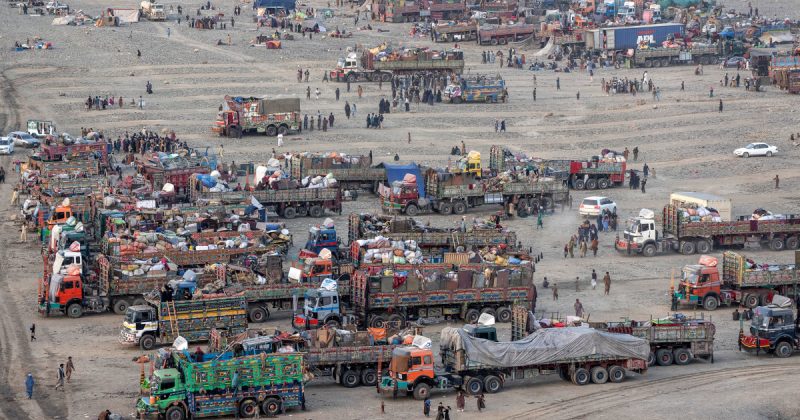
Pakistan’s plan to expel 3 million Afghan refugees this year has sparked international concern and condemnation. A deadline for Afghans to voluntarily leave Islamabad and Rawalpindi expired on March 31st, marking the latest phase in a controversial crackdown on undocumented foreigners. The expulsion plan, which has been criticized by human rights groups, the UN, and the Taliban government, is raising fears of a major humanitarian crisis.
The situation is particularly dire for those Afghans who assisted the U.S. during the war. Tens of thousands fled after the Taliban takeover in 2021, hoping for resettlement in the U.S. under a program designed to protect those at risk. However, President Trump’s suspension of U.S. refugee programs left approximately 20,000 Afghans in limbo, further jeopardizing their safety and security. Now facing deportation from Pakistan, these individuals face an uncertain and potentially dangerous future.
While Pakistan claims that approximately 3 million Afghans remain in the country, the actual numbers are difficult to verify. Many Afghans hold Proof of Registration cards or Afghan Citizen Cards, while others are undocumented. The government’s plan to remove those residing in Islamabad and Rawalpindi was originally set to begin on April 1st but was postponed to April 10th due to the Eid al-Fitr holidays. The government insists that those deported will not be allowed to return.
The expulsion process is raising serious questions about the fate of vulnerable populations. The status of children born in Pakistan to Afghan parents, couples with differing documentation, and families with mixed Pakistani and Afghan citizenship remains unclear. Government officials have suggested that social welfare staff will be available to assist in these complex cases, but details remain scarce and concerns remain about the efficacy of such support.
The Afghan government has expressed its deep concern, stating that Pakistan’s actions are arbitrary and should involve the UN refugee agency and the Taliban government. They’ve appealed for a more humane and coordinated approach to repatriation, emphasizing the need for a dignified return for the affected Afghans. The lack of a clear plan for the resettlement or support of those deported raises serious questions about the potential for a widening humanitarian crisis.
Stories from those affected are heartbreaking. Omaid Khan, for example, holds an Afghan Citizen Card while his wife has Proof of Registration. He is forced to leave, while his wife can remain until June 30th, leaving their undocumented children in a precarious position. Similar stories abound, highlighting the human cost of this mass expulsion. Nazir Ahmed, born and raised in Quetta, Pakistan, has never set foot in Afghanistan and faces the impossible task of relocating to a country he knows nothing about.
The situation underscores the urgent need for international cooperation and intervention to ensure the safety and well-being of the Afghan refugees facing deportation. As the deadline approaches, the international community must pressure Pakistan to adopt a more humane approach and work collaboratively with the UN and the Afghan government to find a just and sustainable solution to this growing humanitarian crisis.










